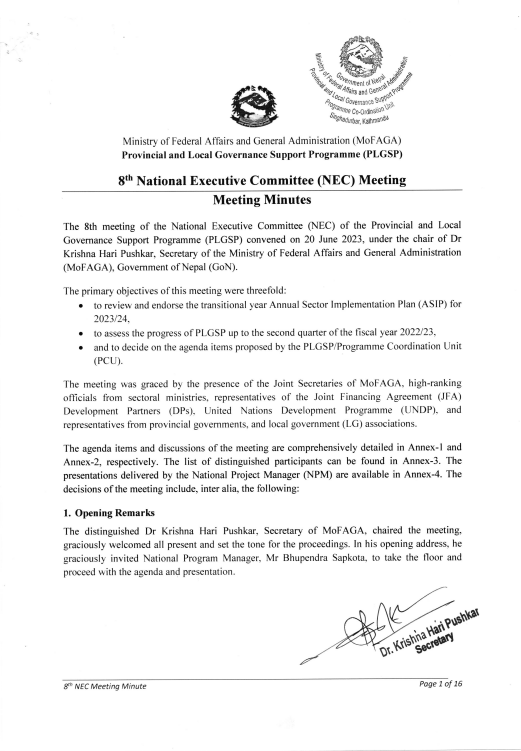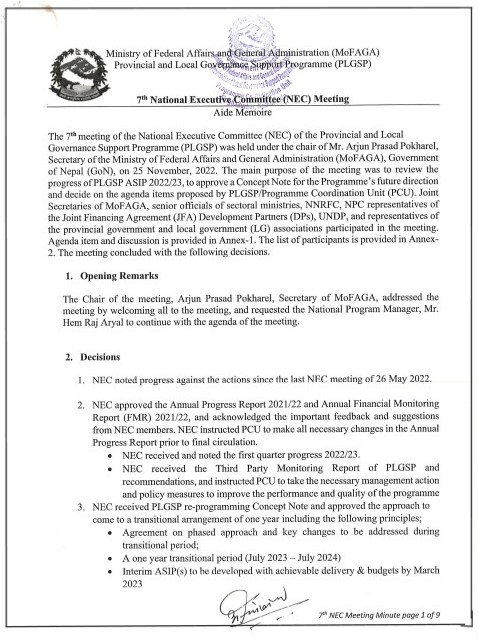प्रदेशको वित्तीय सुशासन जोखिम मुल्यांकन कार्यविधि २०७८ सम्बन्धि अभिमूखीकरण कार्यक्रम
वित्तीय सुशासन जोखिम न्युनीकरणका
The 8th meeting of the National Executive Committee (NEC) of the Provincial and Local Governance Support Programme (PLGSP) convened on 20 June 2023, under the chair of Dr Krishna Hari Pushkar, Secretary of the Ministry of Federal Affairs and General Administration (MoFAGA), Government of Nepal (GON).
The primary objectives of this meeting were threefold:
The meeting was graced by the presence of the Joint Secretaries of MOFAGA. high-ranking officials from sectoral ministries. representatives of the Joint Financing Agreement (JFA) Development Partners (DPs), United Nations Development Programme (UNDP), and representatives from provincial governments, and local government (LG) associations.
The minute of the 8th NEC Meeting is attached herewith, which includes: the agenda items and discussions of the meeting are comprehensively detailed in Annex-1 and Annex-2, respectively. The list of distinguished participants can be found in Annex-3. The presentations delivered by the National Project Manager (NPM) are available in Annex-4.
Click here to access the presentation slides of 8th NEC (including 5th NAFRMSC) Meeting.

The 7th meeting of the National Executive Committee (NEC) of the Provincial and Local Governance Support Programme (PLGSP) was held under the chair of Mr. Arjun Prasad Pokharel, Secretary of the Ministry of Federal Affairs and General Administration (MOFAGA), Government of Nepal (GoN), on 25 November, 2022.
The main purpose of the meeting was to review the progress of PLGSP ASIP 2022/23, to approve a Concept Note for the Programme's future direction and decide on the agenda items proposed by PLGSP/Programme Coordination Unit (PCU).
Joint Secretaries of MOFAGA, senior officials of sectoral ministries, NNRFC, NPC representatives of the Joint Financing Agreement (JFA) Development Partners (DPS), UNDP, and representatives of the provincial government and local government (LG) associations participated in the meeting.

वित्तीय सुशासन जोखिम न्युनीकरणका
नेपालको संविधान अनुसार स्थापित प्रदेश र प्रदेशभित्रका स्थानीय तहमा नियुक्त वा बढुवा हुने कर्मचारीहरूको व्यव